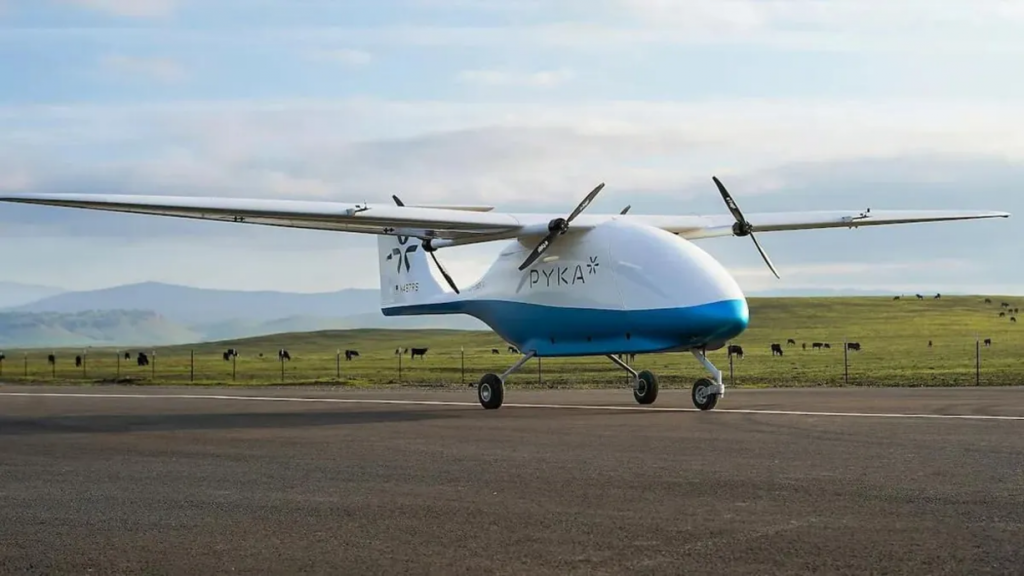Pyka, a California-based startup, launched the Pelican Cargo, the world’s largest zero-emission electric cargo plane and the first autonomous vehicle of its kind.
“Pelican Cargo will have a significant positive impact on people’s lives,” said company CEO and co-founder Michael Norcia.
“We designed this plane to eliminate CO2 emissions from the logistics chain while offering a significant speed advantage over ground transportation and operating costs at a fraction of conventional air transportation.”

The uncrewed aerial system Pelican Cargo has been created for last-mile express logistics operations, with Pyka remarking that it would be especially beneficial for delivering cargo to remote rural regions.
It has a 50-kWh Li-ion battery pack with a per-charge range of up to 200 miles and a 20-minute reserve. The two fixed-pitch propellers at the front and back of each wing are powered by four 25-kW (33.5-hp) electric motors. The aircraft has a fully redundant propulsion, controls, and sensor suite.
The cargo flyer is 24 feet long and 7 feet tall. A 400-pound payload is carried into the cargo bay via a pop-up nose and sliding tray. The plane has a total wingspan of 38 feet and requires a 600 × 50-foot runway to take off.

Additionally, its cruise speed ranges from 80 to 90 knots (92 to 103 mph/148 to 167 km/h). A proprietary aircraft engine with six processors split between two computer systems, forward-facing LiDAR, GPS, radar, and laser technologies are the foundation for autonomous flying.
Pyka states that it has received over 80 pre-commitment orders from three launch customers, one of which has been verified as UK operator Skyports Drone Services, with a flying program set to commence in early Q2.


